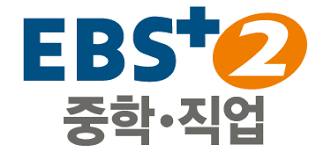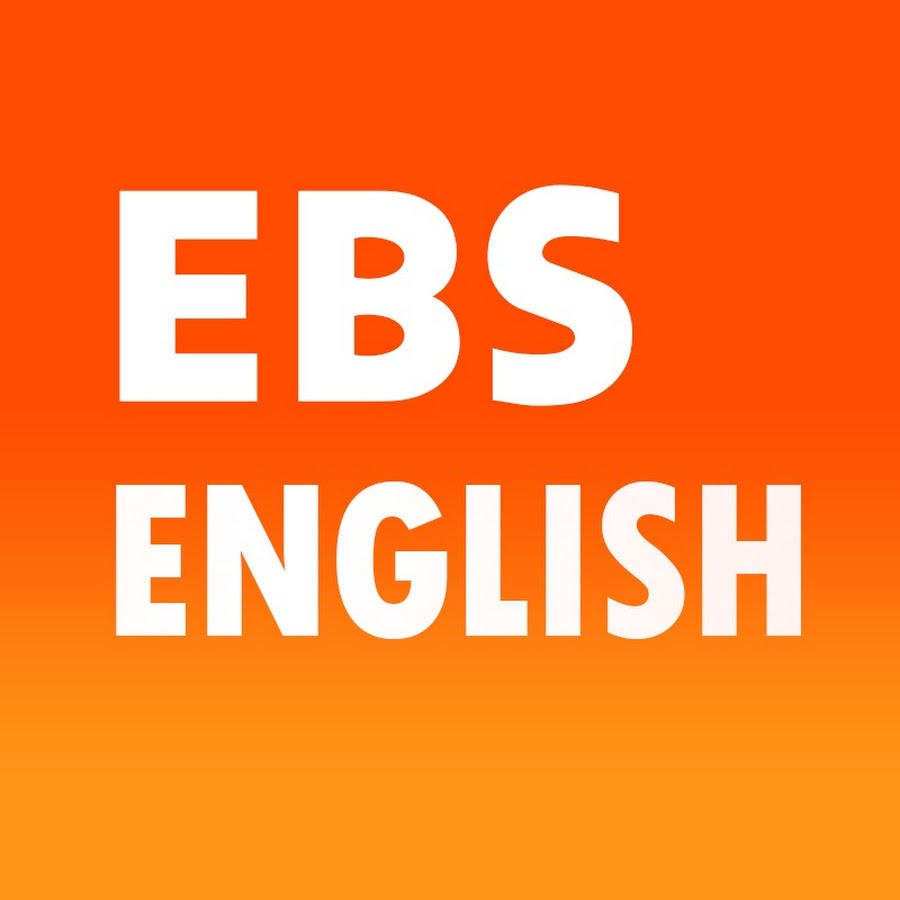http://lcotiv.com/tv/16333130976.html
Korea Educational Broadcasting System (한국교육방송공사) or EBS is a South Korean educational television and radio network covering South Korean territory, and the only major South Korean radio and television network without a separate regional service. Established as KBS 3, Seoul Animation Center and KBS Educational Radio in the 1980s, and became an independent corporation in 1990. EBS strives to supplement school education and promote lifelong education for everyone in Korea.
The main counterparts of this network are PBS in the United States, as well as BBC Two, BBC Four and CBBC in the United Kingdom, CCTV in the China, ABC in the Australia, ABS-CBN, and PTV in the Philippines, & Ecuador TV, and Gamavisión (Ecuador) in Ecuador.
Though nominally a public broadcasting entity, EBS gets most of its yearly budget from advertisements and sales revenue. In 2012, 72.1% of its revenue came from textbook sales, publications and ad revenues on its TV Radio and internet platforms, while the rest came from TV license fees (EBS gets 3% of the total License Fee being collected by the Korean Broadcasting System) and government grants.
- EBS Plus 2 (subscription television) — The main focus of this channel is "lifelong" learning, with various programs for younger and older viewers.

http://lcotiv.com/tv/28297038197.html
Korea Educational Broadcasting System (한국교육방송공사) or EBS is a South Korean educational television and radio network covering South Korean territory, and the only major South Korean radio and television network without a separate regional service. Established as KBS 3, Seoul Animation Center and KBS Educational Radio in the 1980s, and became an independent corporation in 1990. EBS strives to supplement school education and promote lifelong education for everyone in Korea.
The main counterparts of this network are PBS in the United States, as well as BBC Two, BBC Four and CBBC in the United Kingdom, CCTV in the China, ABC in the Australia, ABS-CBN, and PTV in the Philippines, & Ecuador TV, and Gamavisión (Ecuador) in Ecuador.
Though nominally a public broadcasting entity, EBS gets most of its yearly budget from advertisements and sales revenue. In 2012, 72.1% of its revenue came from textbook sales, publications and ad revenues on its TV Radio and internet platforms, while the rest came from TV license fees (EBS gets 3% of the total License Fee being collected by the Korean Broadcasting System) and government grants.
- EBS Plus 1 (subscription television) — The channel focuses greatly around the high school test curriculum and offers programming to complement and amplify the student's in-school education.

http://lcotiv.com/tv/65519907793.html
Korea Educational Broadcasting System (한국교육방송공사) or EBS is a South Korean educational television and radio network covering South Korean territory, and the only major South Korean radio and television network without a separate regional service. Established as KBS 3, Seoul Animation Center and KBS Educational Radio in the 1980s, and became an independent corporation in 1990. EBS strives to supplement school education and promote lifelong education for everyone in Korea.
The main counterparts of this network are PBS in the United States, as well as BBC Two, BBC Four and CBBC in the United Kingdom, CCTV in the China, ABC in the Australia, ABS-CBN, and PTV in the Philippines, & Ecuador TV, and Gamavisión (Ecuador) in Ecuador.
Though nominally a public broadcasting entity, EBS gets most of its yearly budget from advertisements and sales revenue. In 2012, 72.1% of its revenue came from textbook sales, publications and ad revenues on its TV Radio and internet platforms, while the rest came from TV license fees (EBS gets 3% of the total License Fee being collected by the Korean Broadcasting System) and government grants.
- EBS Kids (subscription television) — EBS' children's channel; formerly a simulcast of EBS Plus 1.

http://lcotiv.com/tv/61292110503.html
Korea Educational Broadcasting System (한국교육방송공사) or EBS is a South Korean educational television and radio network covering South Korean territory, and the only major South Korean radio and television network without a separate regional service. Established as KBS 3, Seoul Animation Center and KBS Educational Radio in the 1980s, and became an independent corporation in 1990. EBS strives to supplement school education and promote lifelong education for everyone in Korea.
The main counterparts of this network are PBS in the United States, as well as BBC Two, BBC Four and CBBC in the United Kingdom, CCTV in the China, ABC in the Australia, ABS-CBN, and PTV in the Philippines, & Ecuador TV, and Gamavisión (Ecuador) in Ecuador.
Though nominally a public broadcasting entity, EBS gets most of its yearly budget from advertisements and sales revenue. In 2012, 72.1% of its revenue came from textbook sales, publications and ad revenues on its TV Radio and internet platforms, while the rest came from TV license fees (EBS gets 3% of the total License Fee being collected by the Korean Broadcasting System) and government grants.
- EBS English (subscription television) — This is the network's English education channel, covering kids from kindergarten to grade 12.

http://lcotiv.com/tv/51452310817.html
Educational Broadcasting System (한국교육방송공사 / EBS) is a children's educational television and radio network headquartered in Seocho District, Seoul. It operates six television channels, EBS 1, EBS 2, EBS KIDS (formerly: EBS U), PLUS 1, PLUS 2 and EBSe.

http://lcotiv.com/tv/97746782139.html
EBS1 (formerly KBS3) is a South Korean free-to-air television channel operated by the Educational Broadcasting System. The channel is available as a national network without any regional variation in schedules. Its national distribution however, is administered by KBS.
The channel was originally launched by the Korean Broadcasting System on 2 February 1981 as KBS3 and all the educational television programmes previously broadcast on other KBS channels were moved to a dedicated channel.
In 1990, when the responsibility of broadcasting educational contents was spun off from KBS, the channel became part of the newly-formed Educational Broadcasting System. The channel was rebranded as EBS Television.
In 2000, the Educational Broadcasting System itself was turned into a public corporation. Digital terrestrial transmission began on 5 November 2001 on channel 10.1. On 11 February 2015, when EBS2 was launched, EBS was rebranded as EBS1.

http://lcotiv.com/tv/36701644674.html
Christian Global Network (CGN TV) is a cable and satellite television network that airs Christian programming. The headquarters is located in Yongsan District, Seoul Special City.

http://lcotiv.com/tv/15244145469.html
Arirang TV (Korean: 아리랑 TV; RR: Arirang tibeui, stylized as arirang) is an English-language South Korean television network based in Seoul and aimed at an overseas audience. It is operated by the Korea International Broadcasting Foundation and is financially supported by the Ministry of Culture, Sports and Tourism. The channel, which airs in 103 countries, aims to offer an extensive and informative view of Korea Peninsula affairs, as well as world issues from a global perspective.
The channel airs different programming in different countries, but generally airs news, cultural programs, educational shows and documentaries.
Its flagship news programs feature timely current affairs stories, in-depth interviews with world experts and prominent individuals.
Arirang International Broadcasting Corporation began airing on February 3, 1997. It was operated by the non-profit Korea International Broadcasting Foundation, which was created by Article 32 of the South Korean Civil Code on April 10, 1996. Initially, the channel was available only on cable and satellite television in South Korea and was targeted to foreigners living in or visiting the country.
Arirang International Broadcasting Corporation has three channels for overseas viewers. Arirang World was established as a satellite television channel in 1999 and is broadcast in English, Chinese, Spanish, Korean, Arabic, Russian, Vietnamese, and Indonesian. Arirang UN was established in 2015, and is broadcast in English. As of 2018, the channels are broadcast in 103 countries.

http://lcotiv.com/tv/24151207606.html
Ružinov is a borough of Bratislava, the capital of Slovakia, located in the Bratislava II district. It is the city's second most populated borough, housing over 70,000 inhabitants and its Nivy neighbourhood is the place of the emerging new city center of Bratislava. Ružinov features extensive residential areas, as well as major industrial facilities and transport infrastructure including the Milan Rastislav Štefánik international airport and the D1 motorway.
The borough features the Slovnaft refinery, Avion Shopping Park mall, Ružinov hospital, Štrkovec lake, Zlaté Piesky recreational area and numerous schools and churches.

http://lcotiv.com/tv/13931708373.html
TV LUX is a Catholic television that began broadcasting in Slovakia on May 4, 2008 . Television LUX is a joint project of the production studio Lux Communication, the Salesian order of Don Bosco in Slovakia (since 2012 they are no longer partners in TV LUX, sro) and the Conference of Bishops of Slovakia .
Its broadcasting has been available from the beginning via the Internet , ASTRA 3B satellite - 23.5 ° and cable TV . Licensed for satellite broadcasting since early March 2008 . Television is also offered by Digi TV , Magio Sat, Plustelka and can also be watched via mobile devices. It is also accessible via nationwide DVB-T in the 1st multiplex (but at first the broadcast was accessible only through local multiplexes).
Since 2017, TV LUX has been broadcasting 24 hours a day.
The program is designed to cover all ages. The television program structure includes journalism and news, youth and music blocks, children's programs, documentaries, educational programs, testimonies, faith programs, broadcasts from the Vatican and elsewhere.
